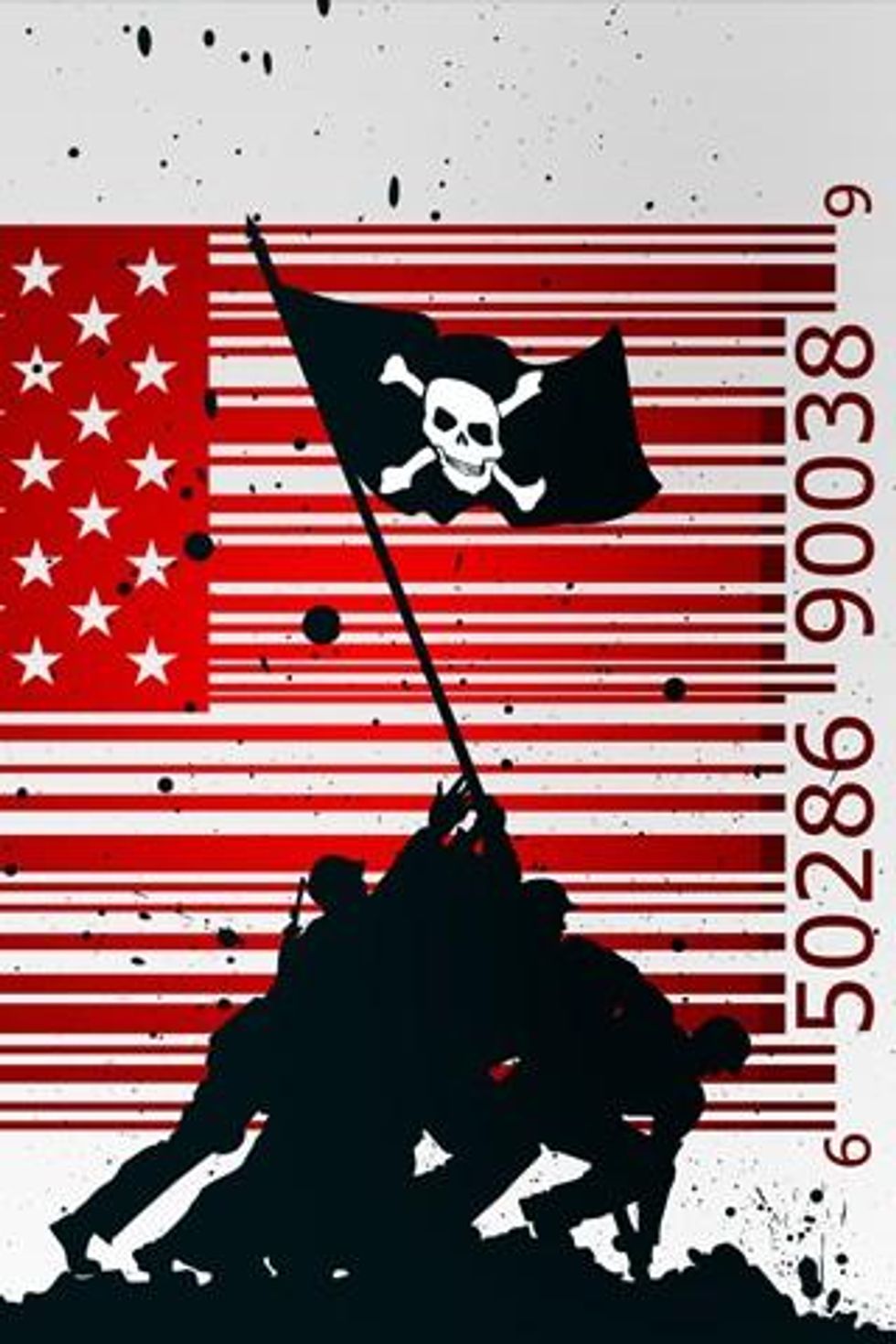The fireworks and celebrations that mark Independence Day are over. But the need for a national conversation on corporate patriotism has never been more timely.
For more than 125 years the courts have been awarding corporations most of the constitutional rights possessed by human beings. Corporations -- as artificial entities -- now almost have rights equal to "We the people," even though the words "corporation" and "company" are not mentioned in the Constitution.
Under the current 5-4 conservative majority in the U.S. Supreme Court, "corporate personhood" is spreading. The Citizens United v. Federal Election Commission case allows unlimited independent corporate expenditures for or against any political candidates.
Since large corporations keep unleashing their corporate attorneys to push the domain of corporations as "persons," it is way overdue to judge them by the same yardsticks as we judge real persons.
U.S. corporations, chartered (born) in the U.S., rising to great size and profits because of American workers, saved or succored repeatedly by taxpayer subsidies and bailouts in Washington and state capitals, and sometimes rescued by U.S. Marines or protected by the U.S. fleets when they are in trouble abroad, owe the American people and our country some measure of loyalty and duty.
Instead of extending patriotic gratitude, large U.S. corporations increasingly are sending the opposite message. "We're outta here, with your jobs," their behavior says. Unfortunately, some CEOs appear to have no problem with dictatorial communist regimes like China or oligarchies like Mexico that know how to oppress impoverished workers. Workers in China cannot start independent unions or uniformly use independent courts to recognize their health, safety and economic rights.
Products from foreign sweatshops are exported back to the U.S. where abandoned factories and communities proliferate.
Corporations say they love their country, especially when it comes to manufacturing modern weapons systems for the Pentagon. So let's extend this love and see how they measure up patriotically.
Is it patriotic for drug companies to leave our country without any production facilities for ingredients used in penicillin and other key drugs because they have shipped production rapidly in the past decade to China and India which lack the inspection standards we have here? Leaving America defenseless and so dependent in this critical area is especially galling. Remember Big Pharma accepts billions in tax credits and valuable free research, development and clinical testing by the National Institutes of Health for many important pharmaceuticals.
Is it patriotic for CEOs to continue using public services and gobs of corporate welfare while they move their corporate headquarters to a small office in the Bahamas or other tax havens to escape paying their fair share to the Treasury? Such tax escapees burden ordinary taxpayers further.
Is it patriotic for CEOs to demand and use taxpayer dollars to facilitate moving abroad with their industries? The latest version of this lack of fealty is taking large federal subsidies for solar energy research and development and then moving the production facilities to China. Andrew Grove, former CEO of Intel, has written critically of this ominous, job-draining trend.
Is it patriotic for General Motors to be saved from bankruptcy by taxpayers and still keep billions in taxpayer-paid reserves and credits, yet lobby against the Obama administration's proposed overdue safety and fuel economy standards?
In 1996, I sent letters to the CEOs of the largest hundred U.S. chartered corporations, urging them at their annual shareholders meeting, in the name of their corporation (not their boards of directors or officers) to pledge allegiance to the flag.
For example, the CEOs would stand up, and on behalf of General Motors, DuPont, Exxon Mobil, Pfizer or Bank of America, "pledge allegiance to the flag of the United States of America and to the republic for which it stands, one nation under God, indivisible, with liberty and justice for all."
The many responses were instructive. Only Federated Department Stores thought it was a good idea. The other companies either said that they would take the suggestion under advisement or they misinterpreted my letter as asking for pledges by corporate officials and shareholders, no matter what their nationality. Ford Motor Co. flatly declared "the concept of corporate allegiance is not workable." In high dudgeon, O. George Everbach wrote back declaring "Kimberly-Clark believes that it has an inalienable right to choose when, where and how it wishes to display its patriotism."
Well at least Kimberly-Clark recognized the concept. Now it is time for American workers and taxpayers to say to corporate America that companies can't always have it both ways -- to receive all the benefits of American corporate personhood and avoid all the expectations of patriotic behavior and the responsibilities that go along with those privileges and immunities.
This is not a left-right divide. For as Pat Buchanan has said, if these U.S. corporations are not loyal to us, why should we be loyal to them?

